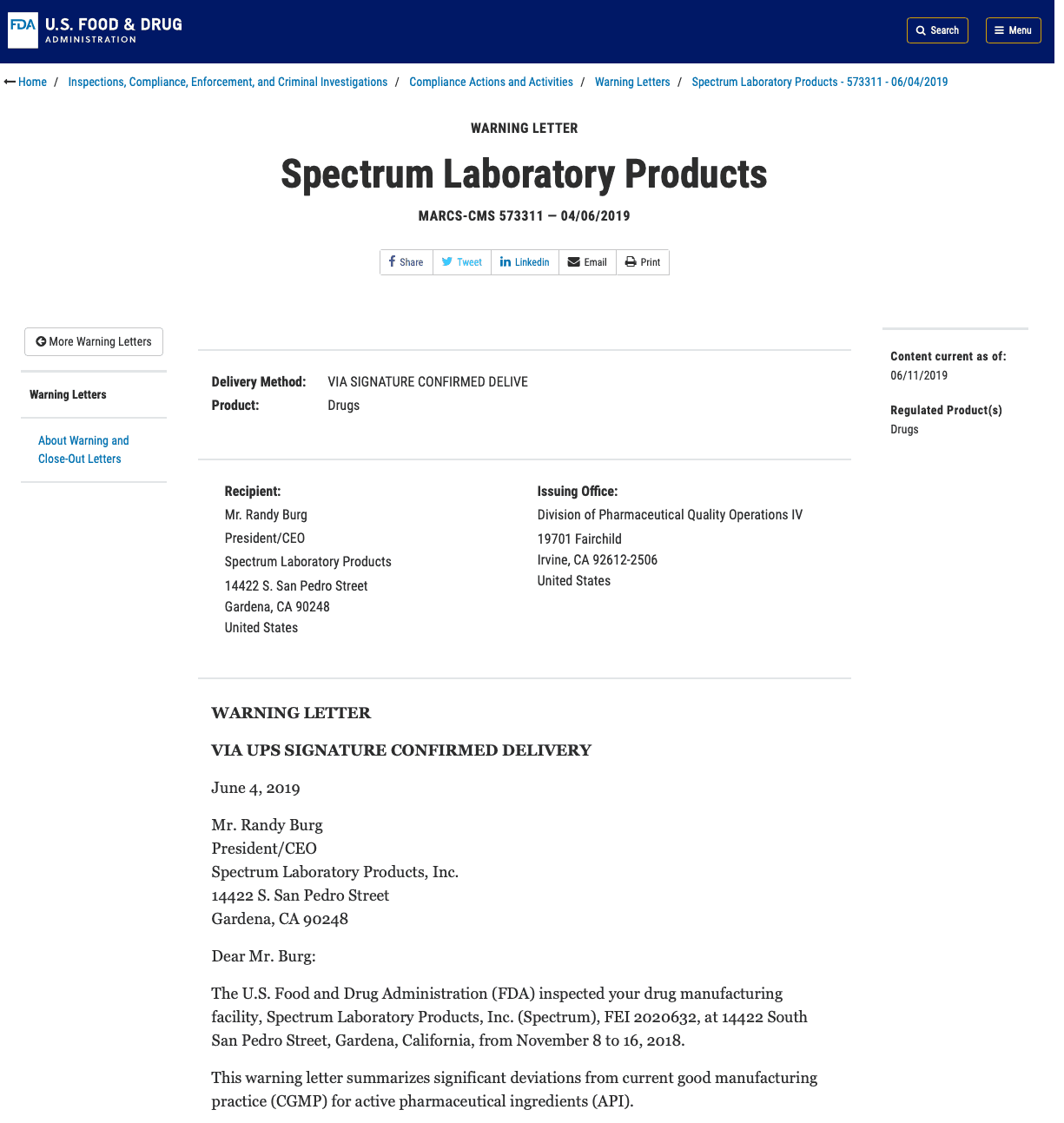FDA Cites Poor Root Cause Analysis of Quality Issues

Poor Root Cause Analysis Gets FDA’s Attention
What’s worse than having a quality issue? Having the FDA discover it, find that you didn’t do thorough root cause analysis of previous issues, and send you a warning letter.
PharmaTech.com reported that Spectrum Laboratory Products, Inc. violated good manufacturing practices for active pharmaceutical ingredients and misbranded products. The article said:
According to FDA, the company’s quality unit failed to perform and document adequate investigations into root causes of deviations. Customer complaints were also not thoroughly investigated, according to the agency. The letter stated that the company must provide full reports for root cause investigations performed and a comprehensive assessment of its system for investigating deviations, atypical events, and complaints.
Is Your Root Cause Analysis Good Enough?
Every regulated manufacturer should know about the fundamentals of root cause analysis AND how to apply advanced root cause analysis to analyze and fix the root causes of quality issues.

Where to Learn the Best Root Cause Analysis
How can you learn advanced root cause analysis? Simple … Attend a public 5-Day TapRooT® Advanced Root Cause Analysis Team Leader Course. Where and when are these courses being held? CLICK HERE to see the complete schedule.
Don’t wait for the FDA to tell you that your root cause analysis is inadequate. Learn advanced root cause analysis at the first course you can attend. Fix the precursor issues and avoid having quality escapes that receive FDA inspection attention.
From the FDA Warning Letter…




